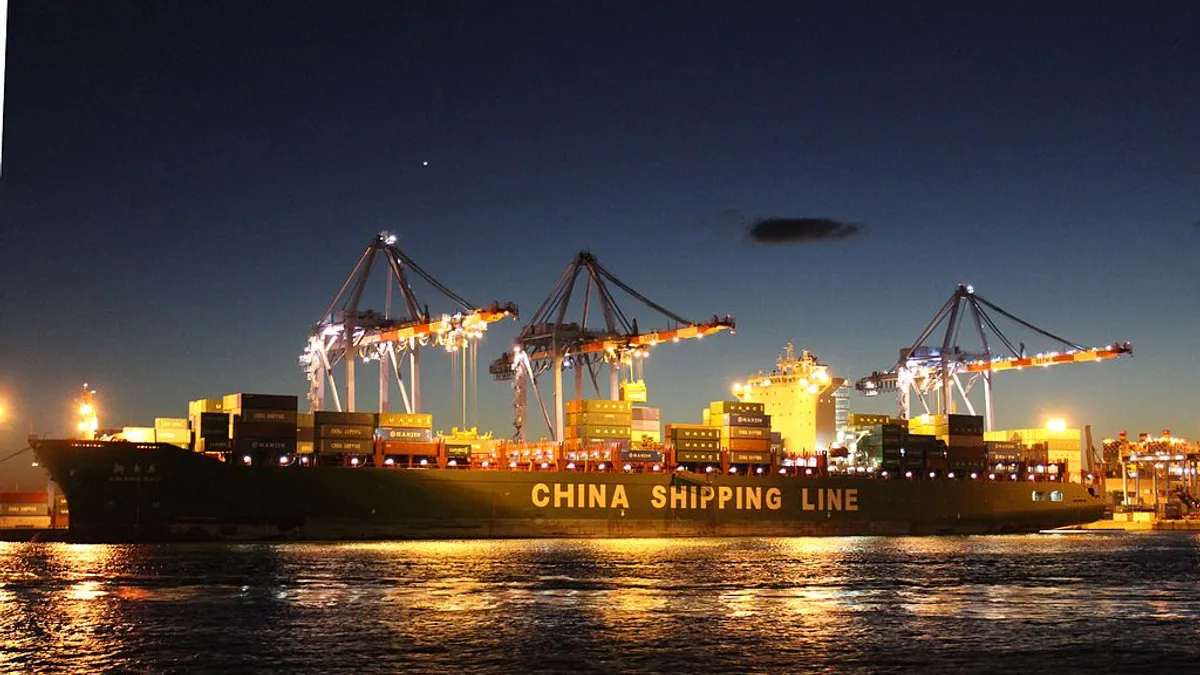Dive Brief:
- The Chinese government has begun to offer more rationale for its July 18 World Trade Organization filing that announced plans to begin restricting the imports of numerous scrap categories — mainly mixed paper and plastics — by the end of the year. A government statement posted on July 27 indicated that this was part of a larger effort to increase domestic recycling to 350 million tons (a 42% increase over 2015 levels) by 2020. To reach that goal, imports that can be substituted with domestic resources will be phased out starting in 2019.
- While the CEOs of publicly traded waste and recycling companies have sought to downplay the potential effects in recent weeks, concern remains high among many players in the scrap industry. The Institute of Scrap Recycling Industries (ISRI) has made it clear new markets will need to be explored, as reported by Recycling International, and some Chinese recyclers have already begun discussing plans to move their operations off the mainland, as reported by Plastics News.
- Meanwhile, inspection and enforcement activity in China has increased this summer, due to the ongoing National Sword campaign. More than 400 inspectors are working across the country and the South China Morning Post reported that an estimated 800 companies have been fined so far. Materials Recycling World reported that about 60% of those violations were for plastic recyclers.
Dive Insight:
While reactions differ in terms of potential severity, most agree that big changes are coming following China's policy announcement. Some say that, given China's Green Fence quality restrictions in 2013, and the more recent National Sword smuggling crackdown, this shouldn't come as a complete surprise. ISRI data does show a slight overall decline in Chinese imports for paper and plastic in recent years, with growth markets in other countries such as India and Vietnam, among others. The Economist also tracked this trend, attributing it to a number of issues with hazardous waste imports over the years.
The definition of "foreign garbage" — the original terminology behind the ban — is still up for interpretation. While it's clear that actual refuse, electronic waste, medical waste or other hazardous materials are unwelcome in scrap-filled shipping containers bound for China, it's hard to know where the country will draw the line on the quality of the scrap itself. Parsing those definitions is, of course, important for the many businesses that rely on this multi-billion dollar trade flow every year. Depending on how tightly this is enforced, up to 16% of U.S. mixed paper imports could be restricted and shipping companies are paying close attention. Others are more confident that China's need for quality fiber provided from the U.S. will outweigh its domestic capacity, whereas plastic may be easier to come by. ISRI has also begun discussing the potential for restrictions on mixed metals and other categories in the coming years.
As outlined in a recent Resource Recycling editorial and elsewhere, this may all be a natural part of China's economic growth. Recyclers and importers will take a hit, but the country's middle class will continue to expand and create more material to be recovered along the way. China has portrayed the decision to reduce imports as a way of tightening environmental standards and becoming more self-sufficient. Circular economy supporters hope that this may be what it takes to catalyze more processing and manufacturing investment in the U.S., too.
If more goods are made domestically there will be less need to ship U.S. scrap overseas to be used as feedstock in Chinese manufacturing plants. This would seem to align well with President Trump's "America First" agenda, but would be a complicated and challenging shift. Even if that does eventually happen, some worry that material may just end up traveling longer distances — or not being recycled at all in the meantime.















